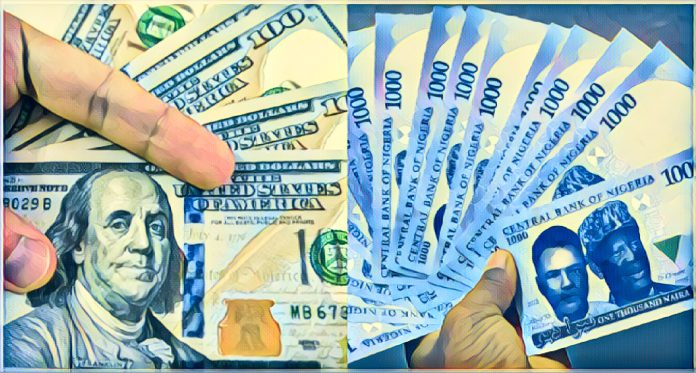The Nigerian naira has hit a historic low against the US dollar, driven by acute foreign exchange shortages and surging dollar demand.
On Monday, the naira was recorded at N980 to a dollar on the parallel market, marking a 13.3% fall from its N865 value on Friday, as per AbokiFX. This is a stark 63.3% decrease from its standing of N600 to a dollar at the year’s outset.
Concurrently, the naira’s value in the official market dwindled, closing at N413.50 to a dollar, as cited by the Central Bank of Nigeria (CBN). This decline of 0.6% from Friday’s N411.13 and 9.4% from N377.90 at the start of the year highlights the deepening forex crisis in Nigeria, Africa’s economic powerhouse and top oil contributor.
Nigeria’s dependency on oil exports for its foreign earnings has made it susceptible to global oil price fluctuations and pandemic-induced impacts, diminishing its oil incomes and foreign reserves.
Meeting the escalating demand for dollars from various sectors has challenged the CBN. Furthermore, accusations of the CBN manipulating the exchange rate and implementing restrictive forex policies have led to disparities between official and unofficial rates, fostering market speculation.
Such forex challenges have led to an inflation surge, reaching 18.12% in April – the steepest in four years, impacting Nigerians’ buying power.
Furthermore, Nigeria’s economic trajectory suffered a downturn with a contraction of 1.92% in 2020, its worst since 1991. Though there was a 0.51% uptick in the 2021 first quarter, it’s still prone to international and local setbacks.
Investor sentiment has waned, with foreign investments plunging by 61% from $2.3 billion in 2019 to $900 million in 2020, as per the National Bureau of Statistics (NBS).
Nigeria’s external debt service commitments have soared by 89% from $1.3 billion in 2019 to $2.5 billion in 2020, putting more strain on its fiscal capabilities.
The CBN has amped up its forex strategies to combat the crisis, including launching the NAFEX or I&E platform. Yet, the persistent demand-supply mismatch for dollars remains.
Institutions like the IMF, World Bank, Nigerian Economic Summit Group (NESG), and some National Assembly members have urged the CBN for a flexible, market-led exchange system. However, the CBN maintains that such moves might amplify inflation and endanger national security. They remain hopeful of an upcoming alleviation in the forex crisis, backed by promising oil and economic indicators.
Source: Business Day.



